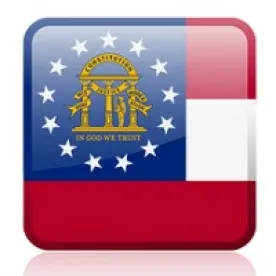Protection from COVID-19 lawsuits
Georgia has provided very strong protections from COVID-19 lawsuits with Senate Bill 359 becoming law. The law provides employers protection against liability from employees and the public unless there is evidence of gross negligence, willful and wanton misconduct, reckless infliction of harm, or intentional infliction of harm in an action involving a COVID-19 liability claim. Despite the strong protections offered by the law, it does not allow for a completely carefree attitude; instead, policies and procedures should be put in place to help stop the spread of COVID-19 on job sites and at the office.
From a construction jobsite perspective, here are some best practices to ensure the protections of law:
-
Require daily questionnaires and temperature checks before allowing workers onto the jobsite.
-
Enforce social distancing, and when that is not possible, require masks.
-
Cut down on sharing — not just in terms of tools used, but also things like water jugs and common areas for gathering during breaks. Instead, encourage distancing at all times and provide individual water bottles.
-
Give consideration to resequencing certain work activities and work areas to cut down on congestion at the jobsite.
-
Make sure that any policies and procedures put in place are being enforced.
These are just some examples of what can be done to protect workers, and therefore receive the protections of Georgia’s new law. Many of the same procedures can be followed at a company’s home office as well. Additional resources are available from the Centers for Disease Control and Prevention here.
Updates regarding inspections and liens
In a prior client alert, available here, we described two key construction bills that passed the legislature and awaited action from Gov. Kemp. Both were signed into law by Gov. Kemp, but they take effect at different times.
The expanded ability to use private inspectors, Senate Bill 377, is effective immediately. This law, under certain conditions, allows for all construction projects that were previously excluded to now use private providers for plan review and inspections.
The revised law regarding “affidavits of nonpayment” associated with liens, Senate Bill 315, is effective January 1, 2021. Under this new law, the failure to submit an affidavit of nonpayment, after previously submitting a lien waiver, will only extinguish lien rights, not all rights to payment. Also, with the new law, the time to file an affidavit of nonpayment will increase from 60 days to 90 days. Given the delayed enactment of the statute, it is imperative that for the remainder of this year, contractors submitting lien waivers file an affidavit of nonpayment 60 days after submitting the lien waiver if they have not been paid.





 />i
/>i

